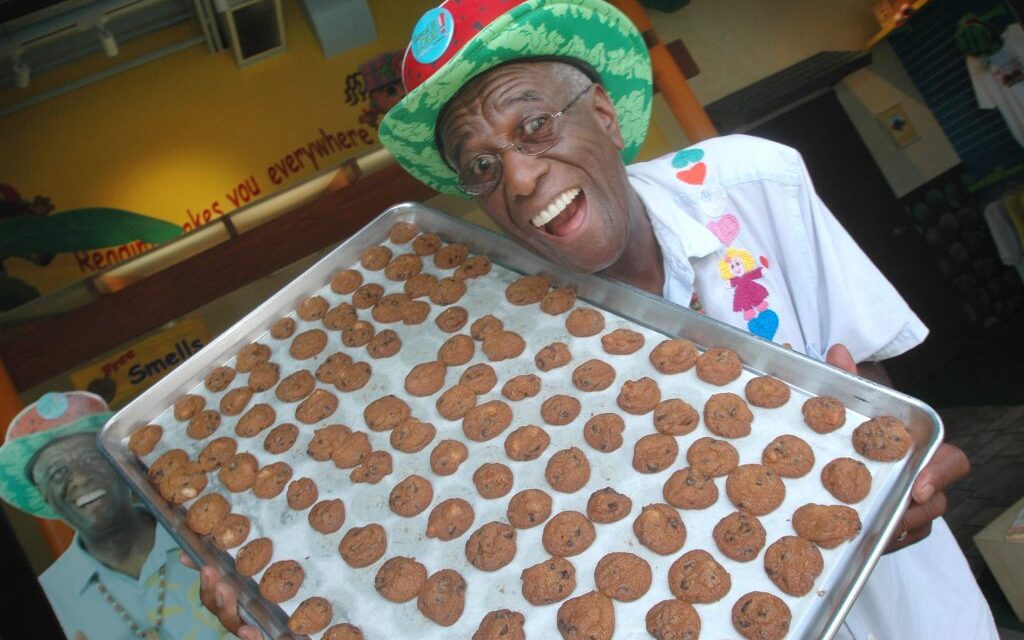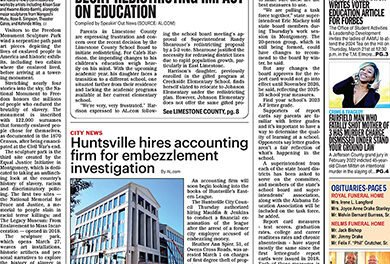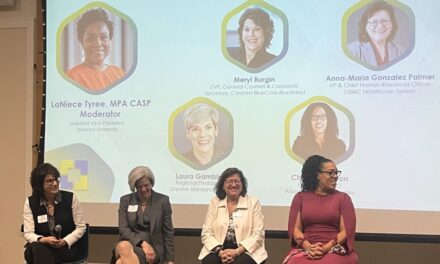By Helen Bezuneh,
Special to the AFRO
At the age of 12, Wally Amos moved to Harlem, N.Y. to live with his Aunt Della, who never failed to fill their home with the sweet aroma of her special chocolate chip cookie recipe –– a recipe that would eventually drive Amos to make his own cookies, along with the country’s first ever cookie-only retail store in Hollywood, Calif. in 1975.
Within a year, the Famous Amos store would sell $300,000 worth of cookies, continuing a long legacy of African-American baking traditions that have been around since the dawn of enslavement.
“There’s a different feeling to food when it’s cooked with love versus just throwing it together,” Kelley Fanto Deetz, vice president of collections and public engagement at Stratford Hall Historic Preserve, told the AFRO. “There’s a different feeling to food– a different taste to food– when it comes from generations of struggle versus just trying to eat some food and it tastes good. When you add struggle and power, when you add those dynamics to the history of food and creating recipes and creating art, you’re going to get something that’s just mind boggling.”


Prior to establishing the store, Amos worked as a talent agent for William Morris Agency, where he would share his homemade cookies with clients during meetings. As clients developed a love for Amos’ cookies, the baker decided that he wanted to establish his own store.
In fact, it was with the financial support of celebrities like Marvin Gaye and Helen Reddy that Amos was able to open his business. By 1982, the Famous Amos Cookie Company was making $12 million in revenue.
Amos would also distribute his products at Macy’s and Bloomingdale’s locations to elevate the brand’s status and recognition. He would eventually make guest appearances on renowned television shows like “Taxi” and “The Office,” elevating the brand’s visibility.
Despite the brand’s initial success, Famous Amos began to face competition from rising cookie brands, causing Amos’ business to decline in 1985. Multiple investors attempted to sustain the company – however, the sheer number of investors led Amos to lose his equity stake in the business.
In 1988, the Shansby Group purchased the company for three million dollars and made Amos a paid spokesperson for the business. A year later, Amos walked away from the company altogether.
The President Baking Company bought Famous Amos for $61 million in 1992, more than 55 times what Amos had sold his controlling stake for a few years prior.
“A few months ago, I remember reading an article in Forbes about the gentrification of Black businesses, where Black businesses find themselves struggling financially, and the only path they see forward is to sell their company, or divest a major portion of their company to White-owned or White-operated businesses,” Tiffiany Howard, associate professor of political science at the University of Nevada, Las Vegas, told the AFRO.
“Although this trend may make financial sense at the time, and to some extent, the alternative is that it may be initially better that the Black business survives in some capacity, rather than to lose that business entirely,” she continued. “But in the long-term this hurts everyone because it deprives society and the consumer of the contribution Black owned businesses make culturally.
While Amos ultimately relinquished his stake in Famous Amos, his establishment of the brand speaks to a longer history of baking’s pivotal role in African-American communities. Even in the era of enslavement, enslaved Africans and African Americans ingeniously utilized limited tools to produce baked goods that would endure through generations.
“In the quarters, they didn’t have a proper bake oven,” said Deetz. “They had to make something out of nothing. They were making hoecakes– they were making anything they could with one pot, like cobblers. If they could get their hands on something, they would make it.”
“I think one of the most amazing and powerful things– looking at the history of enslaved Africans and African Americans in the colonies– is that they were able to make something out of nothing repeatedly for generations,” she continued. “Their overseer would give them a little bit of corn and some pork and they would end up coming together and making gumbo. They had ways of bringing beauty out of pain.”
Though baking powder was not invented until the 1850s, enslaved peoples exhibited remarkable creativity in making sophisticated baked goods using meager ingredients. They would gather berries from the surrounding woods, procure eggs from the chickens roaming the property and harvest flour from the wheat they tirelessly cultivated themselves. Those that worked in the big house kitchen had proper bake ovens, allowing them to create advanced goods.
Once emancipation arrived and African Americans sought to get paid for their baking skills, those kinds of ingredients continued to be fairly inexpensive. After all, making a pie was much cheaper than making an entire dinner. As free people, African-American bakers were finally able to become professional bakers, effectively sustaining themselves and their families.
Amos drawing inspiration from his aunt for his cookie company is a familiar tradition in African-American communities. The intergenerational transmission of family recipes has played a crucial role in African-American culture for centuries.
“Talking about your ancestors was something that had been around for millennia in West Africa,” said Deetz. “You’ve got this tradition of passing down everything – stories, your history, recipes, cooking style, genealogy – all through word of mouth. Once enslavement hit and they were captured and sent over to the colonies, that tradition didn’t end.”
“Those that went across the Middle Passage, they remembered those dishes, they remembered what went in them, they remembered their history and then they came together in places like Virgina, South Carolina, Brazil the Caribbean,” she continued.
As the Great Migration took over the nation during the early to mid twentieth century, approximately six million African Americans fled the South and moved to places like Chicago, New York, D.C. and California to seek a better life –– with them, they brought their cherished family recipes and spread their culinary traditions from sea to shining sea.
For Carla Briggs, African-American founder of Viola’s Heritage Breads in New Orleans, family was also a key starting point for her baking journey.
“I grew up around a lot of great women who cooked and provided food for the family,” Briggs told the AFRO. “My grandmother was an amazing cook and my paternal great-grandmother was an amazing baker. Remembering the times that I spent with them fostered me wanting to go to culinary school and develop the craft that I learned at home, but adding my own authentic way of doing it based on the women.”
“Being able to hone in and appreciate and value the experience of sitting at my grandmother’s table and watching her measure a pinch of this, and having a recipe card and knowing the perfect way to do something to yield the same outcome that people love all the time,” she continued. “Though it isn’t as technical and scientific as some of the things I learned in culinary school, it’s so important to also value the different ways that recipes and culture have been passed down in families through food experiences that are unique and authentic to us.”
Over the years, Amos continued to establish multiple snack brands, but none of them quite reached the success of Famous Amos. Today, Amos serves as a motivational speaker and advocate for educational literacy. He has authored ten books, including “The Cookie Never Crumbles: Inspirational Recipes for Everyday Living” and “The Power In You: Ten Secret Ingredients for Inner Strength.”
“I think we are the foundations of flavor,” Briggs said, in reference to African-American communities. “How rich the culture is and how it’s translated to other spaces is a reminder of how much impact we have on so many things.”
The post AFRO inside look at Wally Amos: Founder of Famous Amos, the first ever cookie-only retail store appeared first on AFRO American Newspapers.











